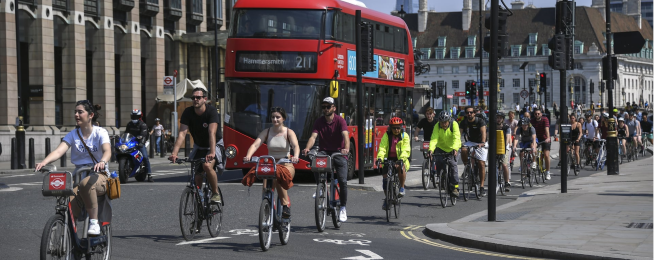Radical changes that will transform London streets—squeezing out cars and promoting bikes—have been announced by the national government and city authorities.
While London has been strong on rhetoric for active travel, achieving priority for bikes to use the road space they require has been frustratingly slow in the face of resistance from the usual suspects behind the steering wheel.
However the COVID-19 crisis has provided government leaders with the sledgehammer they needed to break the rusted iron shackles of car-focused transport policy.
The government has backed its talk with hundreds of millions of pounds now available to local councils prepared to accelerate the installation of segregated bike lanes, partial street closures and wider footpaths.
In a letter to councils the Department for Transport (DfT) stated: "To receive any money under this or future tranches, you will need to show us that you have a swift and meaningful plan to reallocate road space to cyclists and pedestrians, including strategic corridors.”
"We have a window of opportunity to act now to embed walking and cycling as part of new long-term commuting habits and reap the associated health, air quality and congestion benefits.”
"Anything that does not meaningfully alter the status quo on the road will not be funded.”
Action on this scale and imperative is inconceivable from Australia’s timid federal and state transport authorities.
And so is the technique of dealing with recalcitrant councils: “If work has not started within four weeks of receiving your allocation or has not been completed within eight weeks of starting, the Department will reserve the right to claw the funding back.”
On the other hand, councils that do act with alacrity are promised more funds for other project at a later time.
Transport Secretary Grant Shapps is backing the moves from the top, saying he intended to speed up the cycling revolution, helping individuals become fitter and healthier, and reducing air pollution.
"Clean air should be as big a priority for us in the 21st century as clean water was to the Victorians in the 19th,” he said.


